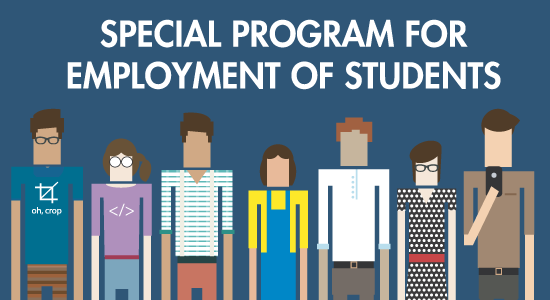Context: The Special Program for Employment of Students (SPES) is a bridging mechanism that enables student beneficiaries to gain skills and workplace experience. It responds to the President of the Philippines’ 22-Point Labor and Employment Agenda which calls for the Department of Labor and Employment (DOLE) to work with relevant government agencies in order to enhance social protection programmes as well as the Emergency Community Employment Program (ECEP) to create jobs that supply young workers with income to spend on fundamental needs. SPES enhances the employability of youth, who will eventually come to be the country’s future workforce. More than providing students with experience while earning income, SPES is designed to increase employment opportunities for young people in the long-term.
Implementation of programme/ initiative: SPES is mandated under Republic Act No. 9547, with the Secretary of Labor and Employment functioning as Program Director. The programme encourages employment during summer and Christmas vacations by incentivizing employers to hire students, though government support in paying their salaries. Under SPES, students get paid a minimum wage, 60 per cent of which is paid in cash by the employers. The remaining 40 per cent are subsidized by the government in the form of vouchers applicable to the payment of tuition fees and books in any secondary, tertiary, vocational or technical educational institution. Students are also entitled to other benefits and privileges under the Labor Code.
Main challenges: The objective of SPES was negatively affected by a delay in the release of checks as well as unclaimed checks by student beneficiaries. According to an Audit Commission, this delay was attributed to the processing time of a huge volume of claims, the frequent submission of incomplete supporting documents, a failure to locate certain students and incomplete payroll submissions by employers. Additionally, in some cases no placement reports were submitted by the Public Service Office to DOLE regional offices. In view of these challenges, DOLE officials were urged to speed up the payment and develop an information technology system to establish a database of SPES beneficiaries to facilitate salary claims. The law prescribes that salary payment to SPES beneficiaries ought to be made through education vouchers. However, payments were often made directly in the form of cash cards or checks. These modes of compensation do not ensure that salaries are used to pay students’ tuition and book fees. State Auditors recommend that DOLE comply with the required payment scheme and refrain from using SPES funds for other purposes to “avoid disallowance of the transactions.”
Results achieved: Based on government records, the budget appropriated to the SPES programme had a cumulative increase of 362 per cent between 2010 and 2015. In 2015, SPES was given a budget of P697 million ($14.7 million) – almost 42 per cent higher than 2014’s P419.48 million ($8.9 million). Meanwhile, the number of SPES beneficiaries also increased together with financial aid. From 84,786 students in 2010, the programme grew to supporting 182,573 beneficiaries in 2014. DOLE’s internship programmes provide students with real work experience within both the private sector and the public service. It is DOLE’s ultimate goal to increase students’ contributions to society as the country’s future workforce.
Moving Forward: In the private sector, SPES beneficiaries are mostly employed as food service crews, customer touch points, office clerks, gasoline attendants, cashiers, sales women, and “promodisers”, amongst other positions. Local Government Units participating in SPES assign students to clerical, encoding, and messengerial duties, as well as other computer and programming jobs. DOLE considers the private sector as partners to reinforce the long-term impact of the programme to its student-beneficiaries. This partnership is borne out of their corporate social responsibility as they take part in helping more students. In the future, SPES aims to form further ties with the private sector.
Replicability: Since 1992, SPES has helped hundreds of thousands of students receive quality education. Between 2010 and 2013, SPES assisted 493,742 poor students, 42.5 per cent of whom are women. In 2013 alone, SPES provided 167,569 beneficiaries with income-earning opportunities to assist them financially during their education. As a school-to-work bridging programme, SPES helps beneficiaries prepare for the world of work. SPES participants use their income to defray expenses of their tuition and other school costs. Since 2010, the programme has been expanded to include out-of-school youth and is implemented throughout the year, with the President mandating further increases of the SPES budget.
References:
www.dole.gov.ph
Project Details
Date: January 18, 2017
